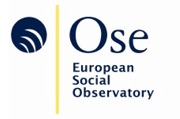The European Social Observatory (OSE) coordinates a new research on the social dimension of the Lisbon Strategy. In order to prepare for the Belgian Presidency of the EUin 2010, the Belgian Social Affairs Cabinet asked the OSE and the Center for Sociological research (CeSO) of the KULeuven to focus on two questions. First, to what extent did the Lisbon Strategy succeed in ‘balancing’ the three objectives of job creation, growth and social progress? Second, has the open method of coordination (OMC) been “effective” in pursuing its ambitious goals?
This research will result in concrete policy recommendations, aimed at feeding the political debate during the Belgian Presidency of the EU as well as at the high-level Conference on the Open Method of Coordination on Social Protection and Social Inclusion scheduled mid September 2010. Policy recommendations will address shortcomings of the social dimension of the Lisbon Strategy in the context of the current economic crisis and negotiations of the future EU2020 Strategy, while outlining improvements of the social OMC, both at EU level and in its day-to-day functioning in (decentralized) Belgium.
OSE team members taking part in this project: Cécile Barbier, Dalila Ghailani, David Natali, Anna Safuta, Bart Vanhercke.
The Social Dimension in the Lisbon Strategy: Achievements, Challenges and Perspectives (project “EU2020”)
-
